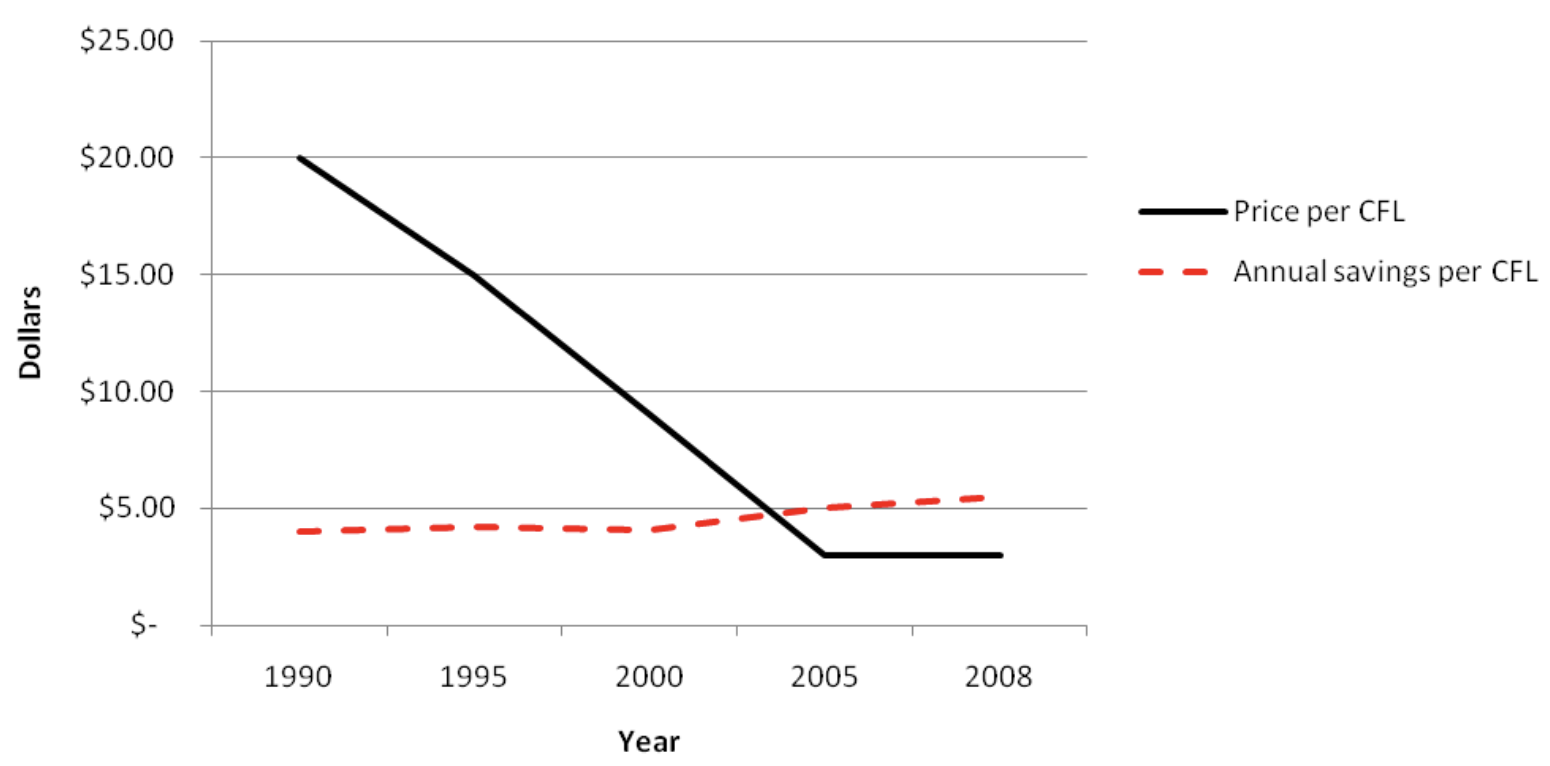Global Economy, Markets and Strategy

Agenda
- Case: Selling CFLs at Wal-Mart.
"The pleasure which we are to enjoy ten years hence, interests us so little in comparison with that which we may enjoy today..."
- Adam Smith, The Theory of Moral Sentiments
What is the problem Barron at Wal-Mart is working on?
What are the costs/benefits of using CFLs?
| Advantages of CFLs | Disadvantages of CFLs |
| 1) | 1) |
| 2) | 2) |
| 3) | 3) |
What would the rational economist do in their house?
Economics from the case.

Why is adoption so low at this time?
How many light sockets are in your house/apartment?
How much was your last electric bill?
Moral Hazard among renters/roommates.
An (incomplete) contract isn't able to align individual actions with their costs. This is a classic problem in economics.
Survey question insights.
Suppose I could give you:
| Suppose I could give you:
|
| $\bar{X}=156$ "depends how hungry i am" -someone | $\bar{X}=119$ "Price higher than 100, enough to cover the 2-week waiting time." -someone else |
Dynamic Consistency: a truly magnificent property.
The action a person thinks they should take in the future always coincides with the action that they actually prefer once the time comes.
Examples:
- If today we wish ourselves to work on a problem set tomorrow, then tomorrow we prefer to work on the problem set immediately.
- If today we prefer to quit smoking tomorrow, then tomorrow we prefer to quit smoking immediately.
- If today we prefer to diet tomorrow, tomorrow we will want to diet immediately.
Present Bias: in actuality, people have a strong tendency to over-value immediate gratification, relative to their own long-term preferences.
- If so, then dynamic consistency no longer holds.
Back to economics from the case.

What would a behavioural economist at Wal-Mart do to "nudge" CFL adoption?
| Group 1 | Didier Jouen | Aleks Spasic | Rhys Webster | Anas Nasar | Tanvi Pal |
| Group 2 | Elena Mitra | Omoefe Eromosele | Dan Vanderkaden | Natalie Ho | Kunal Rathore |
| Group 3 | Duncan Rae | Mike Starchuk | Brandon Clarke | Reilly Baggs | Lin Lu |
| Group 4 | Sandeep Jangir | Joshua Bush | Jack Davies | Rahul Karippath | Sanjog Mishra |
| Group 5 | Salena Nazarali | Gonzalo Garcia Mansilla | Faiza M'Ghizou | Kelechi Inyama | Arsallan Butt |
How do third parties (govt./utilities) play a role here?
What would a behavioural economist at a third party do to "nudge" CFL adoption?
Intertemporal choice problems can lead to:
- Dynamic inconsistency: making choices that do not align with one's own long-run preferences.
- A consequence of Present Bias.
- Generates inefficient market outcomes.